Tesla to build electric-car factory in Chinese free-trade zone: reportTesla to build electric-car factory in Chinese free-trade zone: report
China is the world’s largest car market, and the country plans to phase out sales of new vehicles with combustion engines in the future.
Tesla makes and sells only electric cars, and it aspires to become a volume automaker, meaning China is key to its future.
The Chinese government effectively requires carmakers to manufacture in the country to avoid tariffs that add significantly to the price of imported cars.
DON’T MISS: Tesla and China: why an obvious match isn’t as simple as it seems (Oct 2016)
So the auto industry has long expected Tesla to set up an assembly plant in China, its second after the huge facility it bought from Toyota in Fremont, California.
Now, if a report from The Wall Street Journal (subscription required) is accurate, Tesla will build an electric-car plant in the free-trade zone in Shanghai, China’s largest city.
According to the story released Sunday, which cites people familiar with the matter, Tesla will become the first car company to establish a plant in the free-trade zone without a local automaker as a partner.
Tesla factory, Fremont, California
That means the electric cars it makes there will apparently still suffer a 25-percent tariff placed on foreign-made cars, because the free-trade zone is largely intended for goods that are to be exported.
Tesla would still enjoy lower overall costs, however, with access to Chinese suppliers of everything from parts to battery cells, along with far lower transportation costs than it incurs in shipping cars to China from California.
The company has historically been reluctant to partner with a local automaker, as virtually every global maker has done, because it would require splitting profits and sharing engineering and technology secrets.
READ THIS: China to loosen electric-car rules for foreign makers, because they didn’t work
As a result, Tesla’s California-built cars carry prices as much as 50 percent higher than they do in the U.S.
Cutting that increase from 50 percent to the 25 percent imposed by the tariff, lowered by potential cost savings from local parts, is expected to boost the company’s sales in China.
Today, only 15 percent of the cars Tesla delivers—76,000 last year—are destined for China.
Tesla Model S charging from public electric network, Sichuan Province, China [photo: Car News China]
This year, China issued a proposal to relax its strict rules on electric-car manufacturing.
Those rules had previously required joint ventures with Chinese makers, joint ownership of intellectual property for the technologies in the cars, and sales under new Chinese brand names.
While most foreign makers complied with the terms, virtually no new vehicles were developed and sold in volume by the new ventures.
CHECK OUT: Is China the key to all those Tesla Model 3 deposits? (May 2016)
Permitting a company like Tesla to build electric cars in China without a local partner would represent an early result of the relaxed rules, even if the tariff on “imported” cars would still apply.
It remains unclear, however, whose battery cells Tesla could use, since electric-car makers must buy cells from companies on a separate “white list” of approved lithium-ion cell manufacturers to get them certified for sale inside China.
Tesla has used Panasonic cells in all of its cars built to date—the Roadster, Model S, Model X, and Model 3—but whether the Japanese company’s cells will be approved is not yet clear.
_______________________________________
Follow GreenCarReports on Facebook and Twitter.
View original article at: “https://www.greencarreports.com//news/1113398_tesla-to-build-electric-car-factory-in-chinese-free-trade-zone-report”
Related posts


Electric SUVs: Top 6 Models for Family Trips










